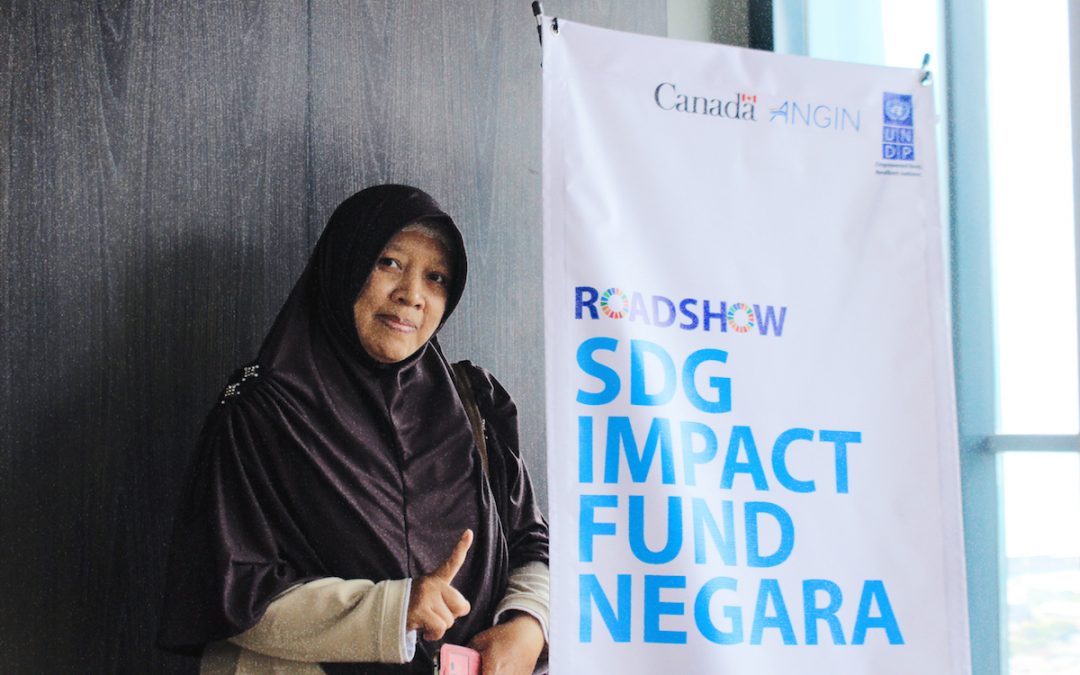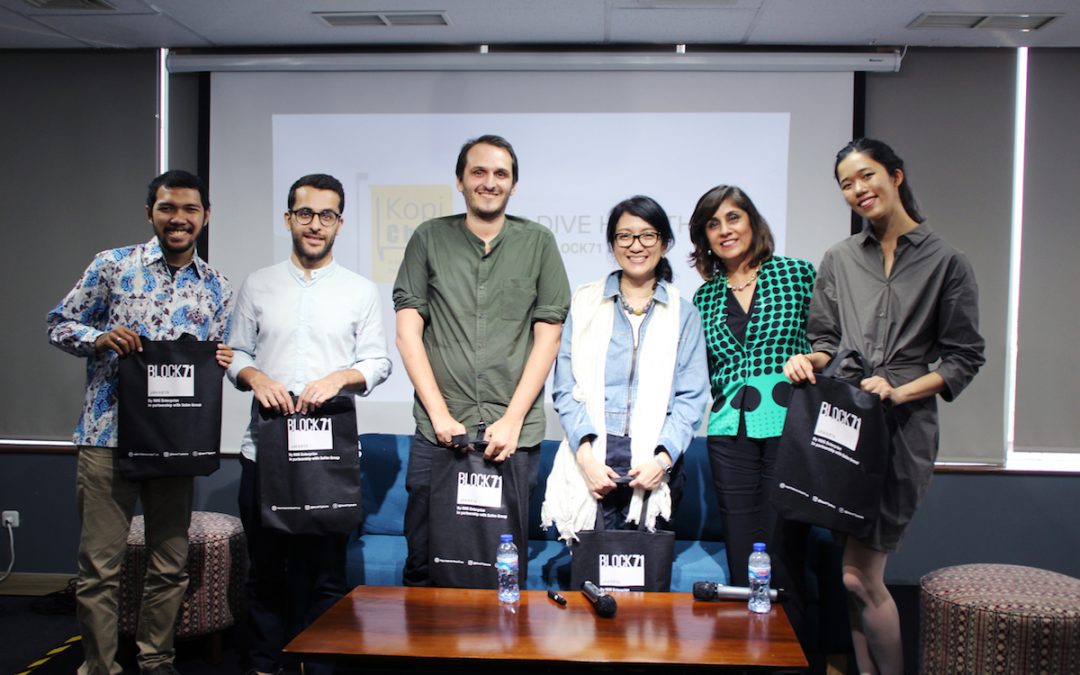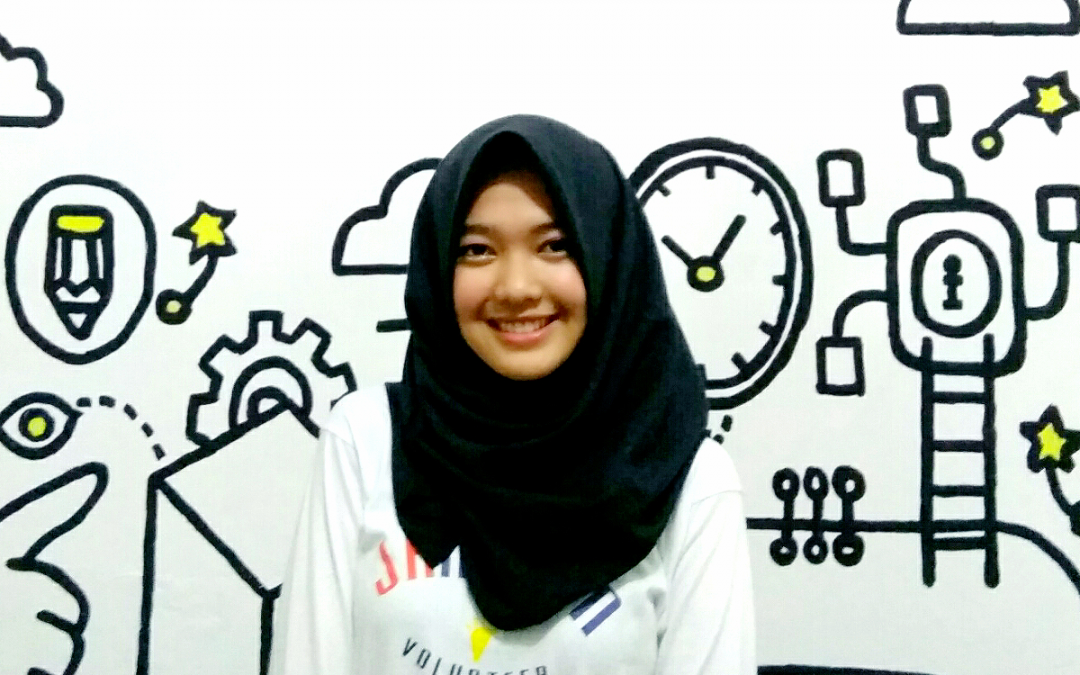Tell me a bit about yourselves.
My name is Okthalia. I’m a business major student. Aside from being a student, I’m also involved with female empowerment. I inspire to be a changemaker, no matter what others say. I’m really concerned about women’s rights and how women are usually misjudged in society. Maybe that’s what inspired me to do something and be the voice for women to be heard.
My name is Isthofany Irfana Azkiya (or Fany for short) and I am a female software engineer. I always wonder why people hold the stereotype that women cannot be skilled in tech? Why they can’t be prominent in the tech industry? Actually, women can make it as programmers. My goal is to change the perception of women in the tech industry, to show that women can be programmers, too.
Can you tell me a little bit more about the inequalities you’ve noticed in the tech industry and society in general? What stories out there have inspire you to do this?
Okthalia: Actually if you ask it like that, I’m afraid it will be out of scope of our concern in Wonderlabs Academy. but I’m just going to say what I feel. In Indonesia, some people – whether we like it or not – some people think women still belong in the kitchen, or are born to be housewives, cooking and taking care of kids. And when a woman has a higher status than a man, nobody wants to approach her because men certainly want to be higher in status than women, right?
There’s something that really bothers me a lot — how religion is mistakenly correlated with culture. For instance – I’m a Muslim, and Islamic tradition does not promote disrespecting women. But somehow in [Indonesia] we still believe that women are not capable of leading. It’s, you know, the belief that women just belong in the kitchen and need to have kids and everything. It is true that women have emotions and might be more empathetic than men, but that doesn’t mean that the degree of a woman is worth less than that of a man.
So in starting Wonderlabs Academy, what challenges have you faced? How do you make yourselves keep going?
Fany: We just started the pilot project, so this is the first batch, the first cohort. The enthusiasm is good. We got 78 applicants, but we could only accept 8 due to limited resources. We luckily have had no hate comments or objections or anything like that.
Okthalia: The challenges we face are actually general challenges. It’s a challenge people face in running a school, such as how to convince the participants that what they’re learning matters, and teaching the participants effectively. Another challenge is in finding resources to teach them.
What’s your vision? Your long-term goal for Wonderlabs Academy?
Fany: I hope there will be more women in technology. Women are good – we are better than men in some ways (laughs). Just kidding. But we have to be confident. We can do it.
Okthalia: Actually, the tech sector is really interesting and it really brings benefits to women. We understand that women want to take care of their children. Actually, you can do that in the tech industry – you can work from home.
What are some tech trends or news that excite you?
Fany: We want to support our government program – 1000 Startup Digital. 1000 Startup Digital is a government program in which the government wants to support and create 1000 startups. It’s something that is new for Indonesia, but startups are rapidly growing here. For example, GO-JEK, Grab, Kitabisa, Bukalapak, Traveloka, etc.
What is one thing you want to tell girls out there who want to be developers but are unsure about themselves?
Fany: We have to be brave and believe that we can do it. If we are really patient and really want to learn, we can be good programmers.
Okthalia: For me, for the developer, it’s that yeah, I think it’s pretty much like Steve Job’s message: If you want to succeed in a goal, you have to be curious and dig deep to find the insights you need to get there.









